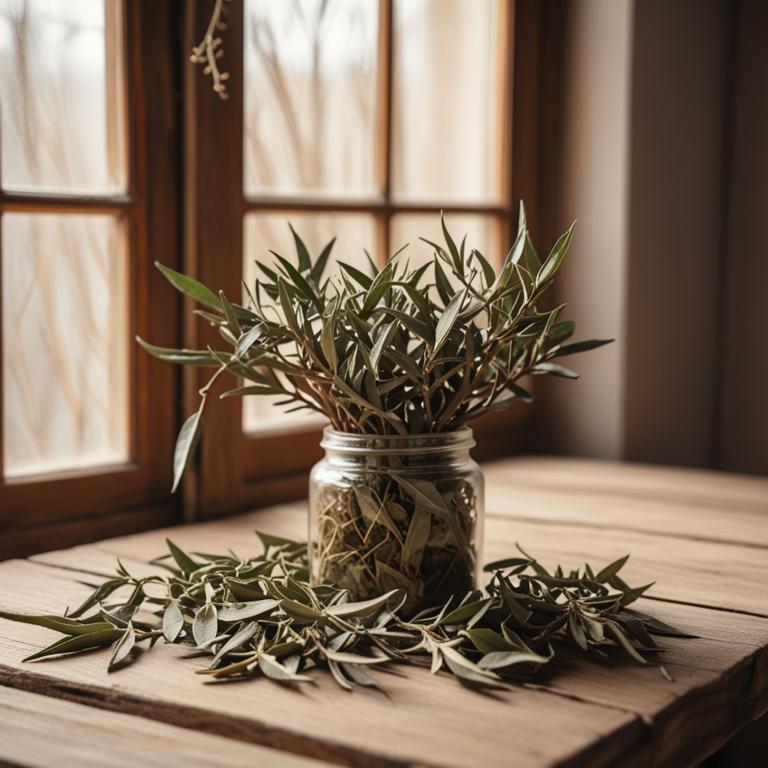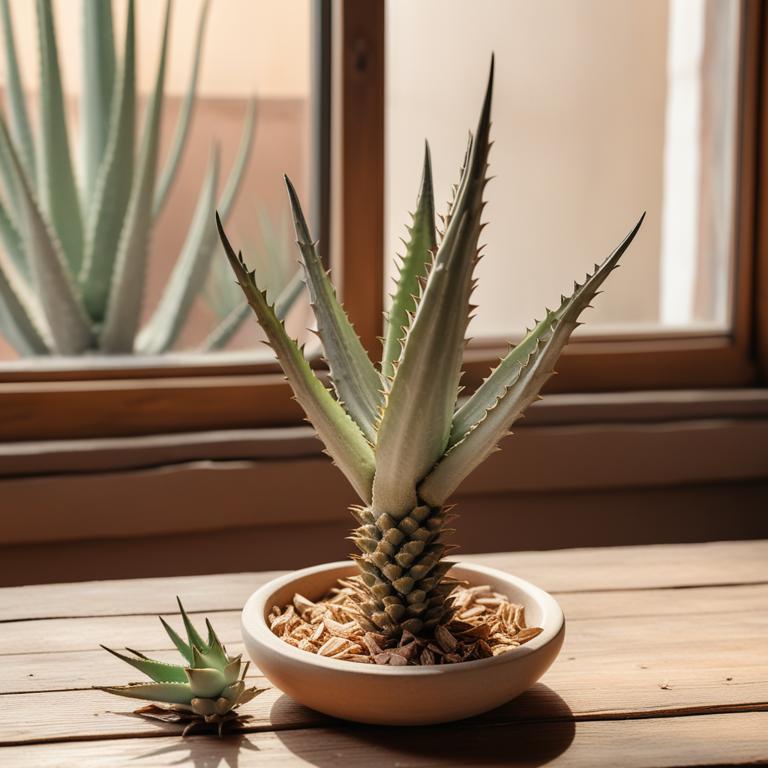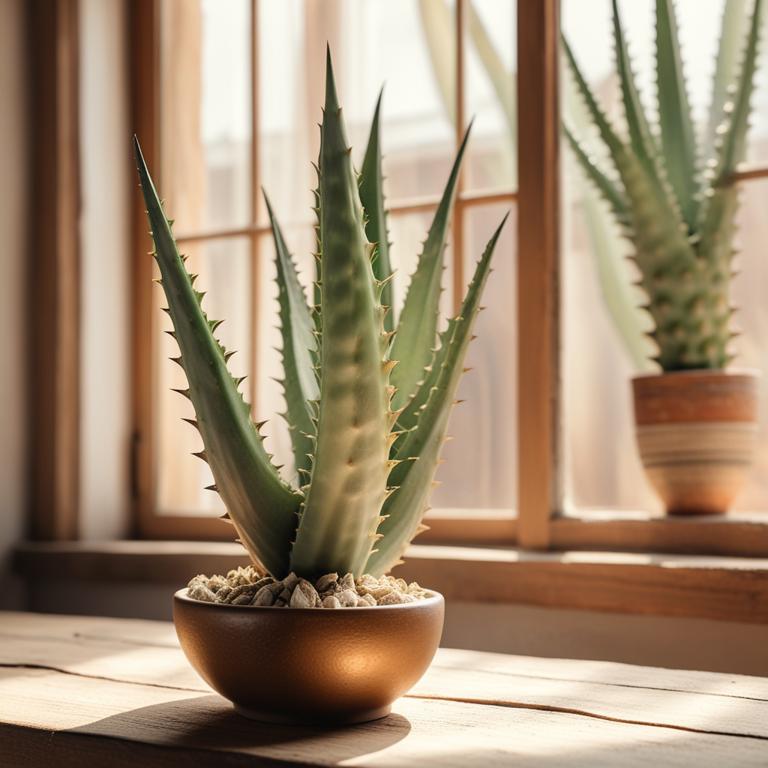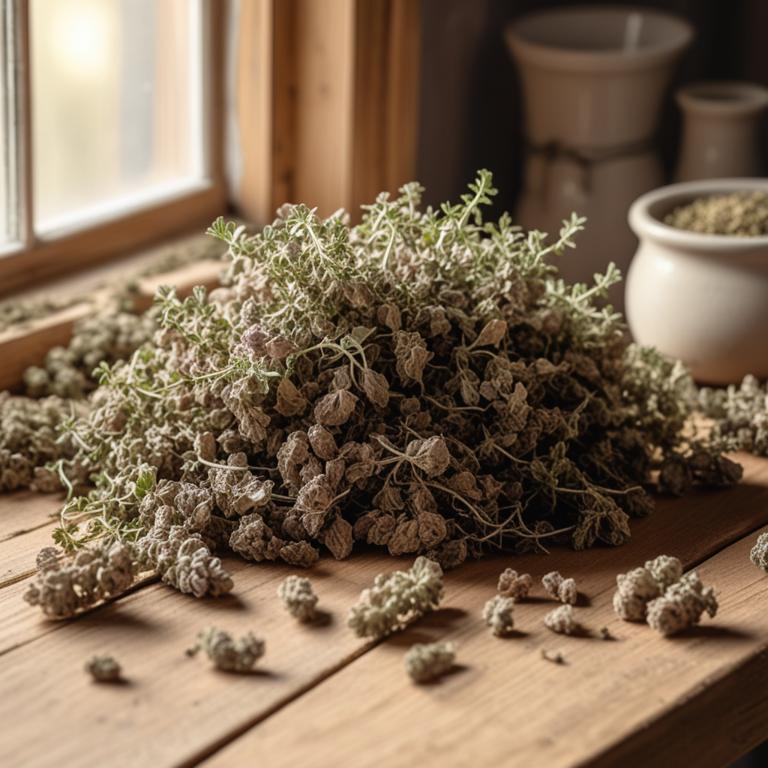Updated: Dec 1, 2024
Baldness: Causes, Prevention, and Herbal Remedies

Baldness, also known as alopecia, is a condition where hair falls out from the scalp, often leading to a completely hairless head.
It can affect anyone, regardless of age, but it's more common in men. For those who experience baldness, it can be a source of anxiety and low self-esteem, affecting their daily lives and relationships. Baldness is often caused by a combination of genetic and hormonal factors. The most common cause is a condition called androgenetic alopecia, where the hormone dihydrotestosterone (DHT) causes hair follicles to shrink, leading to hair loss. Other causes include stress, certain medical conditions, and certain medications.
Fortunately, there are some herbal remedies that may help promote hair growth and reduce hair loss. Herbs like saw palmetto, which blocks the production of DHT, and biotin, a B-complex vitamin that promotes hair growth, have been shown to be effective in treating baldness. Other herbs, such as rosemary and thyme, are known for their ability to improve circulation to the scalp, which can help to stimulate hair growth. To use these herbs, you can try drinking teas made from them, such as saw palmetto tea or rosemary tea. You can also try applying a topical solution made from these herbs to your scalp.
Some people also find it helpful to mix these herbs with coconut oil or olive oil and apply it to their scalp before bedtime.
Table of Contents
What are the reasons behind baldness?
The main causes of baldness are complex and varied, but several key factors play a significant role.
Androgenetic alopecia, also known as male/female pattern baldness, is the most common cause, caused by the conversion of testosterone into dihydrotestosterone (DHT) in the body. DHT shortens the growth cycle of hair, leading to thinner and shorter hair over time. This process is often triggered by genetics, as a family history of baldness can increase an individual's likelihood of experiencing it.
Aging is also a significant contributor, as the production of hormones, including DHT, naturally increases with age. Additionally, hormonal imbalances, such as an overactive thyroid gland or an underactive pituitary gland, can also cause hair loss. Alopecia, on the other hand, is a condition characterized by patchy hair loss, often caused by autoimmune disorders, stress, or even certain medications.
In many cases, a combination of these factors can lead to baldness, highlighting the importance of understanding the underlying causes to develop effective treatment plans.
What advantages come from using herbs to combat baldness?
Using herbs for baldness can be a great option for people who want to stimulate hair growth or slow down hair loss.
One of the main benefits is that they are often natural and gentle on the scalp, unlike some chemical-based treatments that can cause irritation or side effects. These herbs can help to increase blood flow to the scalp, which is essential for hair growth.
They can also help to reduce stress and anxiety, which are known to contribute to hair loss. Some herbs can even help to strengthen the hair follicles, making the hair less prone to breakage. Additionally, they can help to promote a healthy scalp environment, which is necessary for hair growth to occur.
By using these herbs, people can potentially see an improvement in their hair density and growth rate over time, but it's essential to be patient and consistent with the treatment.
What are the key medical herbs known for treating baldness?

Herbs have been used for centuries to promote hair growth and prevent baldness.
Let's take a look at some of the most effective ones. Serenoa repens, also known as saw palmetto, helps block the production of dihydrotestosterone (DHT), a hormone that contributes to hair loss. By stopping DHT, saw palmetto creates an environment that's more conducive to hair growth. Another herb that's gaining attention is Rosmarinus officinalis, or rosemary. It improves blood flow to the scalp, which helps nourish hair follicles and promote growth. This is especially helpful for people with thinning hair.
Aloe barbadensis, or aloe vera, has anti-inflammatory properties that soothe an itchy scalp and reduce redness. This can help prevent further hair loss due to irritation. Ginkgo biloba, an ancient herb, has been shown to improve blood circulation and reduce inflammation. When combined with other herbs, it can create a powerful combination that promotes hair growth. Panax ginseng, or Asian ginseng, also boosts blood circulation and helps reduce stress, which is a common cause of hair loss. When these herbs are used together, they can create a comprehensive approach to preventing baldness.
By using these herbs in combination, people can create a natural solution to promote hair growth and prevent baldness.
What are the top herbal preparations for preventing baldness?

Herbal preparations can be a good option for people dealing with baldness.
One way to use these preparations is by taking them as a tincture. A tincture is a liquid extract of herbs that can be added to water or taken straight. It's easy to make and can be very potent, so start with a small dose. Another option is a decoction, which is a liquid made by boiling herbs. This method can help bring out the active ingredients in the herbs. Decoctions can be made with a combination of herbs, which can be beneficial for treating baldness. Herbal preparations can also be taken in capsule form.
Capsules are a convenient way to take herbs as they're easy to swallow and can be made with a specific dose of herbs. This method is good for people who have trouble swallowing liquids or prefer a more straightforward way of taking herbs. Drinking herbal tea is another way to use these preparations for treating baldness. Tea is made by steeping herbs in hot water, which brings out their active ingredients. This method is good for people who prefer a more gentle approach to treating baldness. Lastly, some herbal preparations come in the form of a cream. This method is applied directly to the scalp, which can be beneficial for people who want to target the root cause of their baldness.
The cream can help stimulate hair growth and reduce inflammation in the scalp.
Additional Resources:
Which herbs should you avoid if you're experiencing baldness?
If you have baldness, it's best to steer clear of Artemisia absinthium, also known as wormwood, and Vitex agnus-castus, or chasteberry.
These herbs can slow down hair growth and even cause hair loss, making your baldness worse. Wormwood is known to affect hormone levels, which can disrupt the balance needed for healthy hair growth. Chasteberry, on the other hand, can also affect hormone levels, but in a way that can stop hair growth. Another herb to avoid is Thuja occidentalis, or eastern white cedar. This herb can cause hair loss by affecting the hair follicles.
It's also known to cause scalp irritation, which can make your baldness more noticeable. Cynara scolymus, or artichoke, may seem like an unlikely culprit, but it can also cause hair loss. The thistle-like plant can affect hormone levels, leading to hair loss. Taxus baccata, or yew, is another herb you should be careful with if you have baldness. The plant's leaves contain a toxic compound that can cause hair loss and even damage the hair follicles. These herbs can be found in supplements, teas, and other products, so it's essential to check the ingredients before using them.
If you have baldness, it's always better to err on the side of caution and avoid these herbs altogether.
FAQ
Are there any specific herbs that can prevent baldness?
Some herbs may help slow down hair loss or promote hair growth.
Rosemary and saw palmetto are two examples. Rosemary is said to improve blood flow to the scalp, while saw palmetto may block the conversion of testosterone to dihydrotestosterone, a hormone linked to hair loss.
These herbs may be found in supplements or used in hair care products.
Is it safe to use herbal remedies for baldness during pregnancy?
Using herbal remedies for baldness during pregnancy can be a concern.
Some herbs, like saw palmetto and biotin, are often used for hair loss, but their safety during pregnancy isn't well understood.
If you're considering using these remedies, be cautious and look for reliable information on their potential effects on your pregnancy.
Are there any herbs that can reduce the frequency of baldness?
There are some herbs that may help reduce the frequency of baldness.
Saw palmetto is one such herb that's often used. It's thought to block the conversion of testosterone to dihydrotestosterone, a hormone that can contribute to hair loss.
Some people also use rosemary essential oil, which may improve blood flow to the scalp and promote hair growth.
Related Articles

Hyperpigmentation: Causes, Herbal Preparations, and Medicinal Solutions

Eye Swelling: Causes, Symptoms, and Medicinal Herb Remedies

The Jellyfish Sting: Understanding Its Causes and Natural Remedies

Chapped Lips: Causes, Medicinal Herbs, and Natural Preparations for Soothing Relief

Bruises: Causes, Symptoms, and Herbal Preparations for Relief






